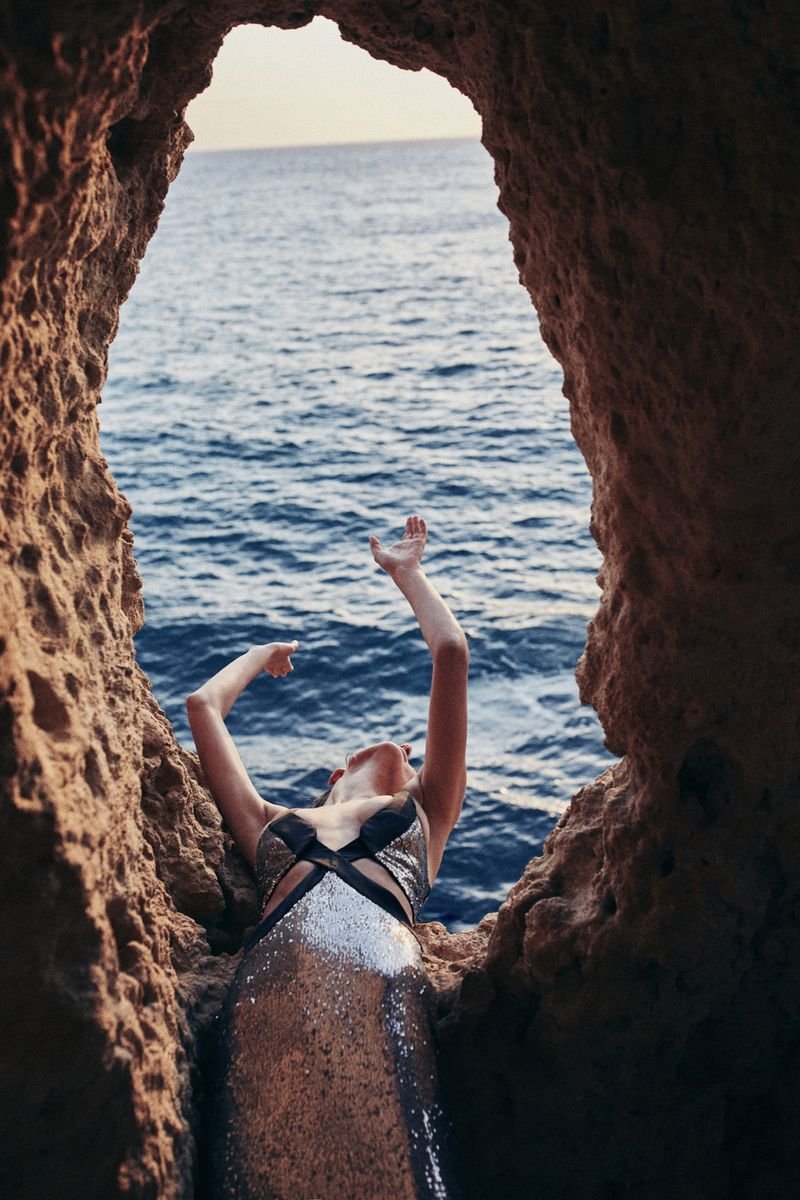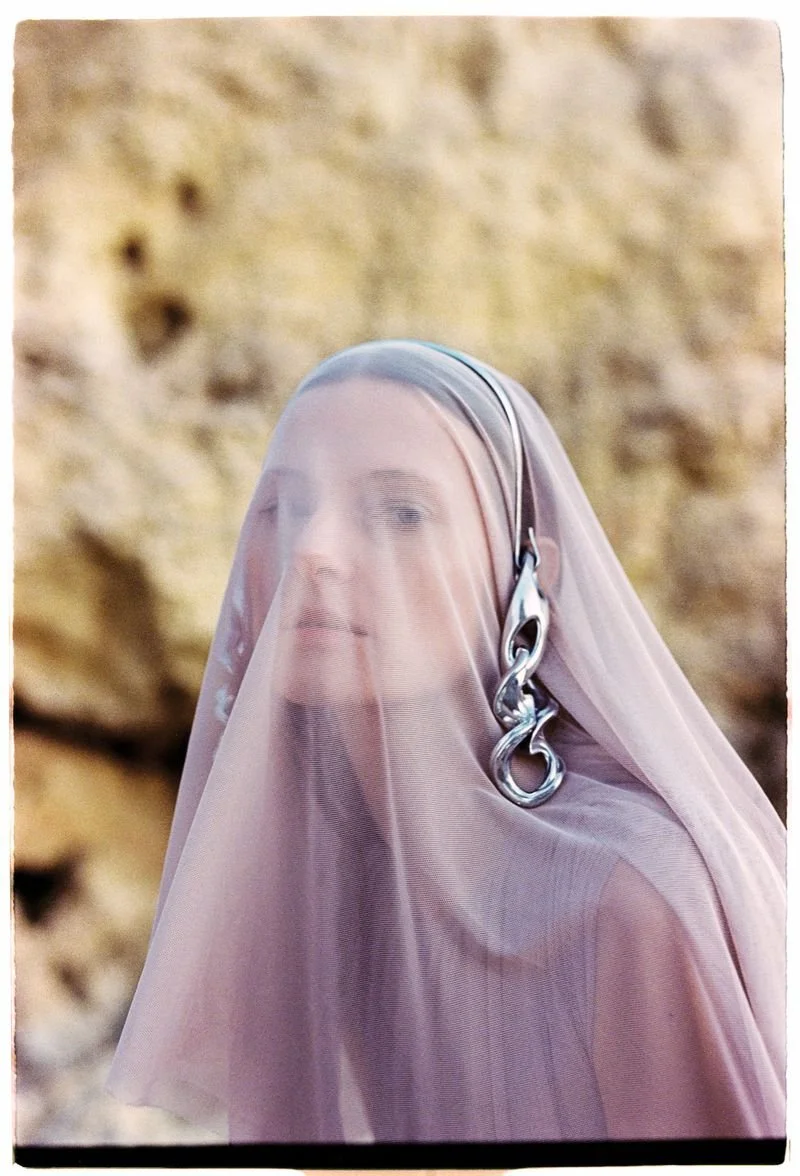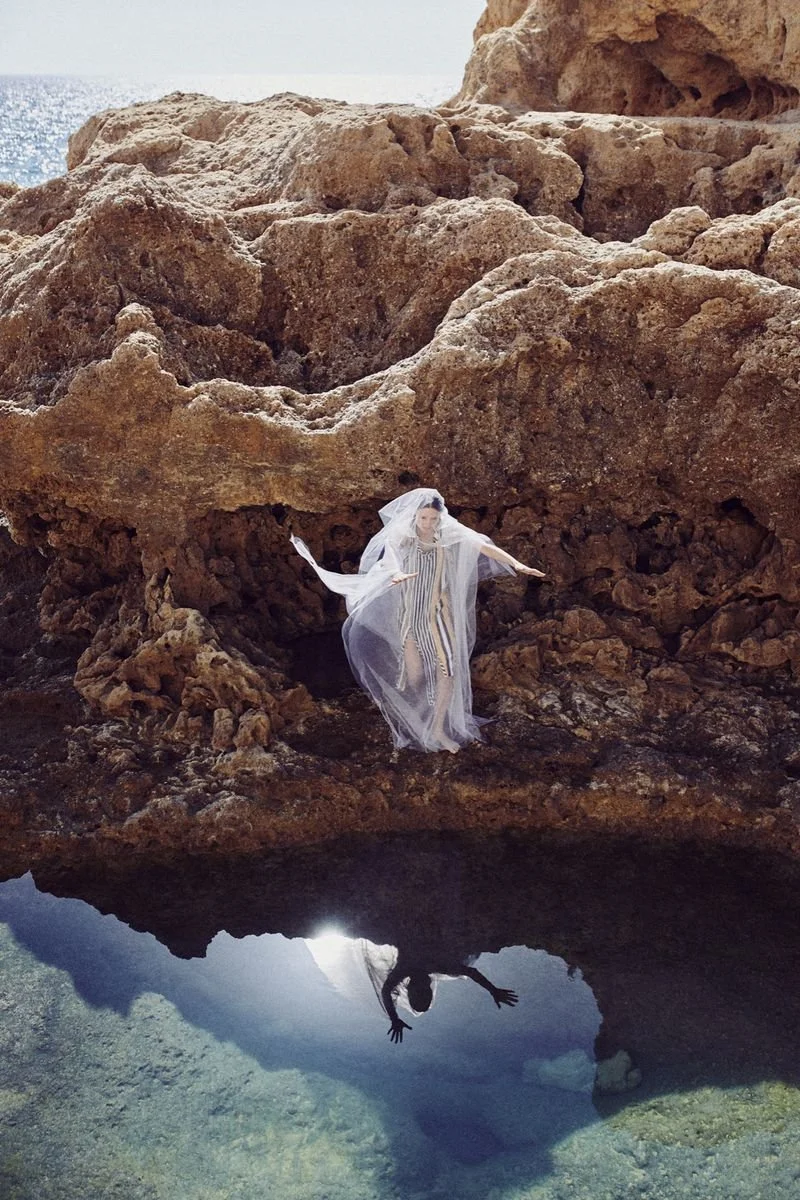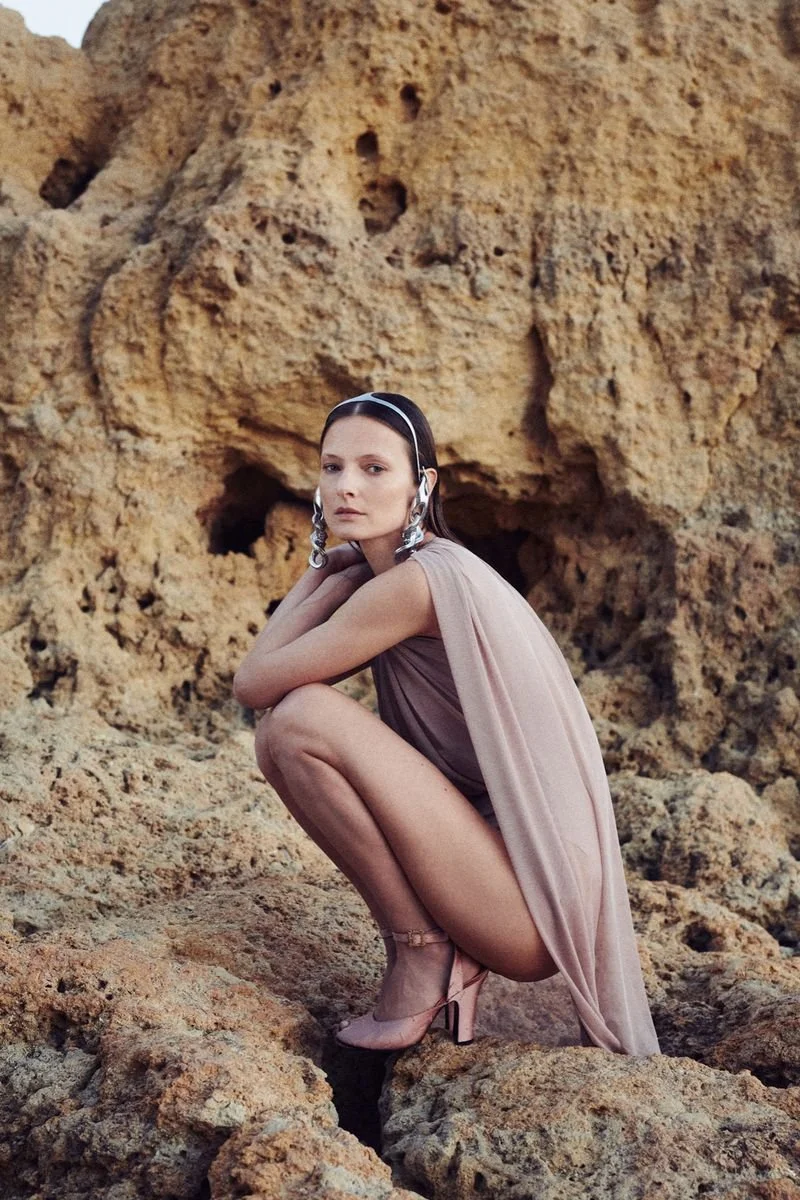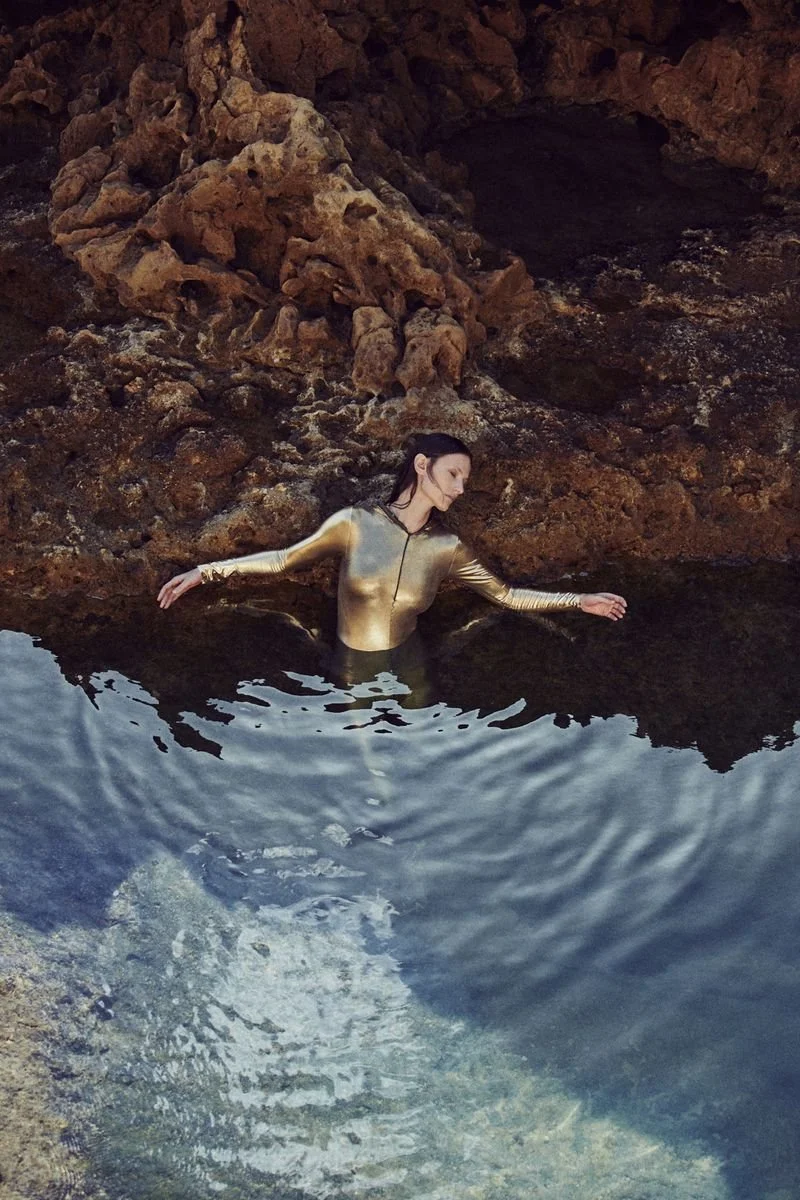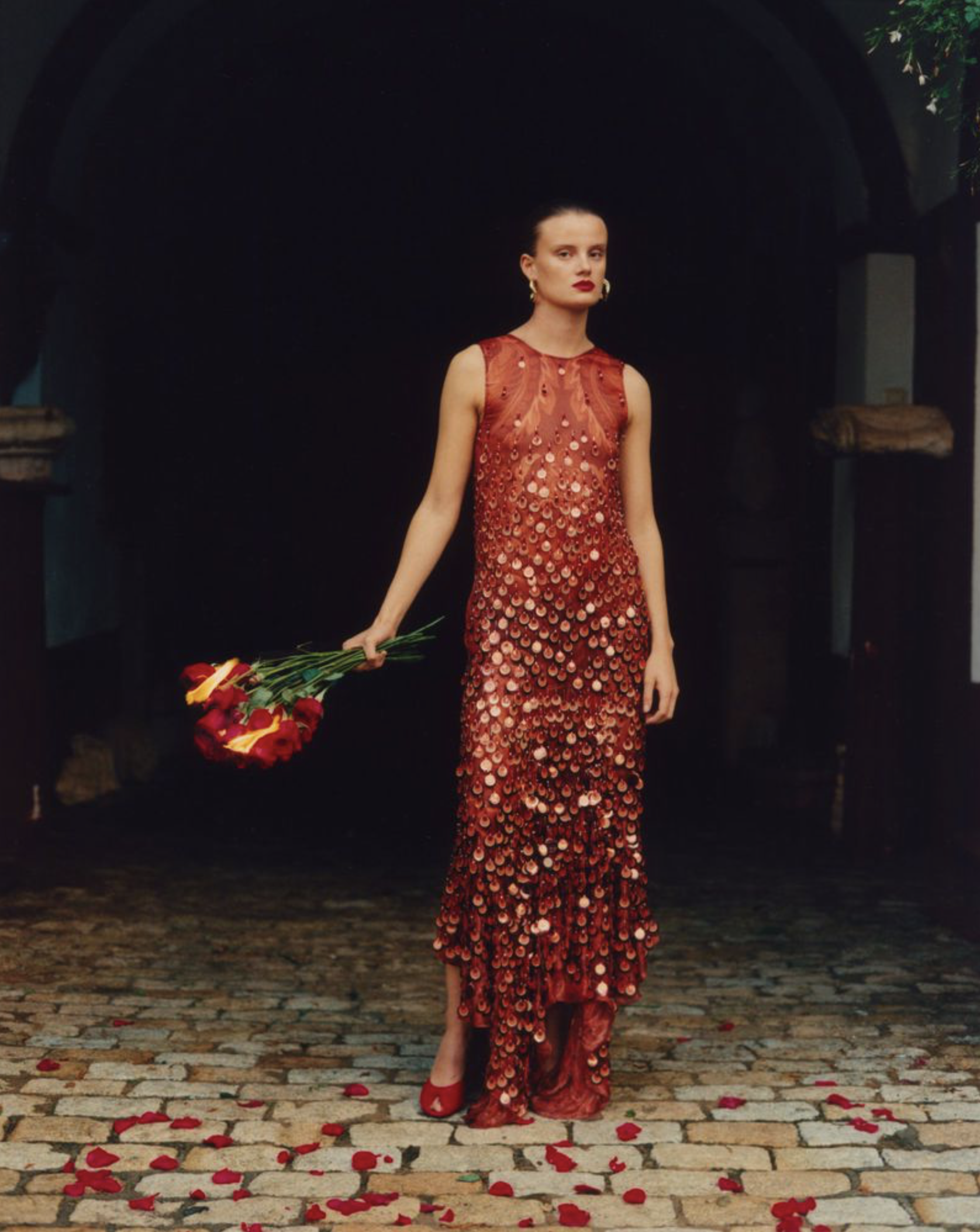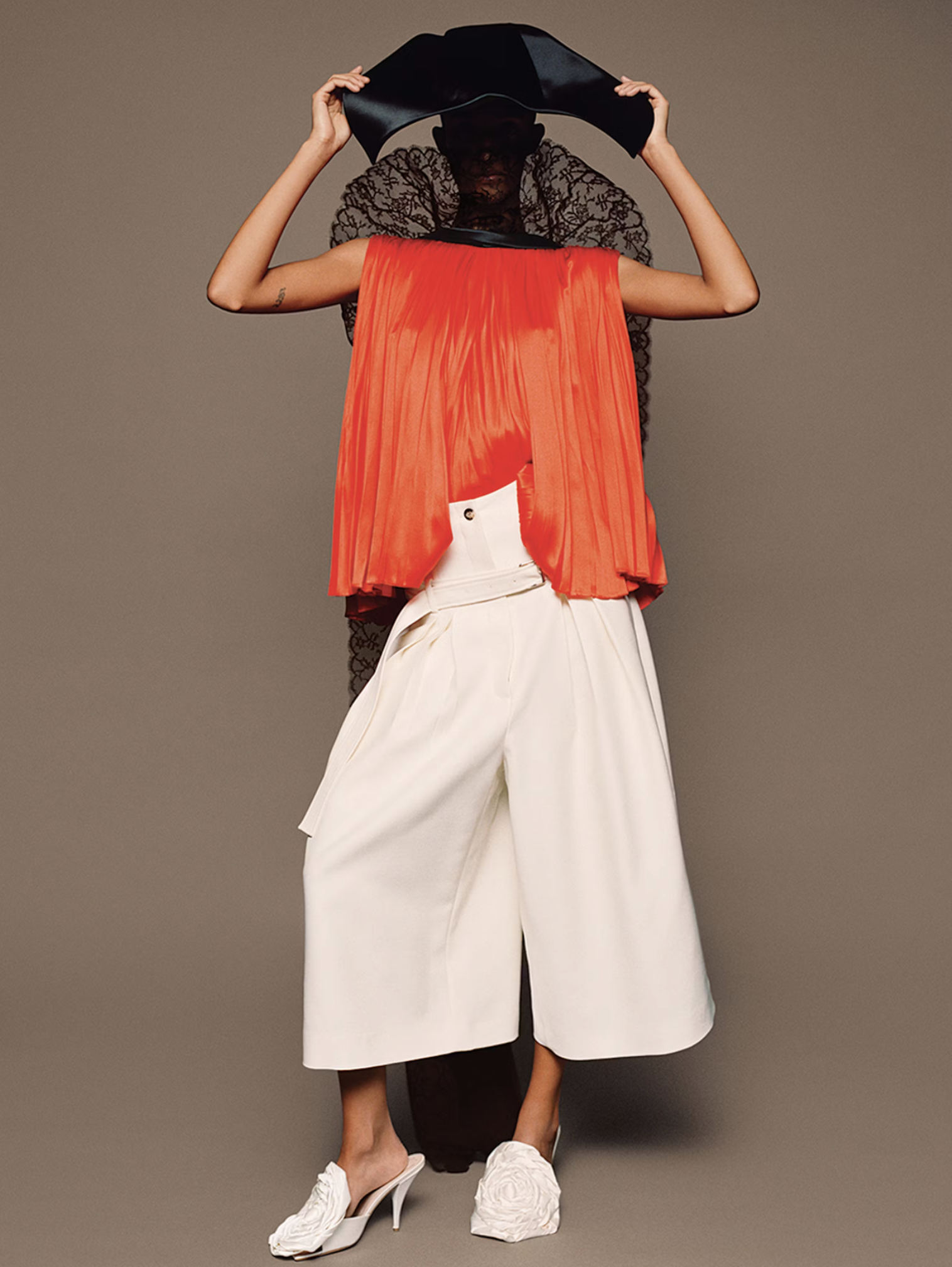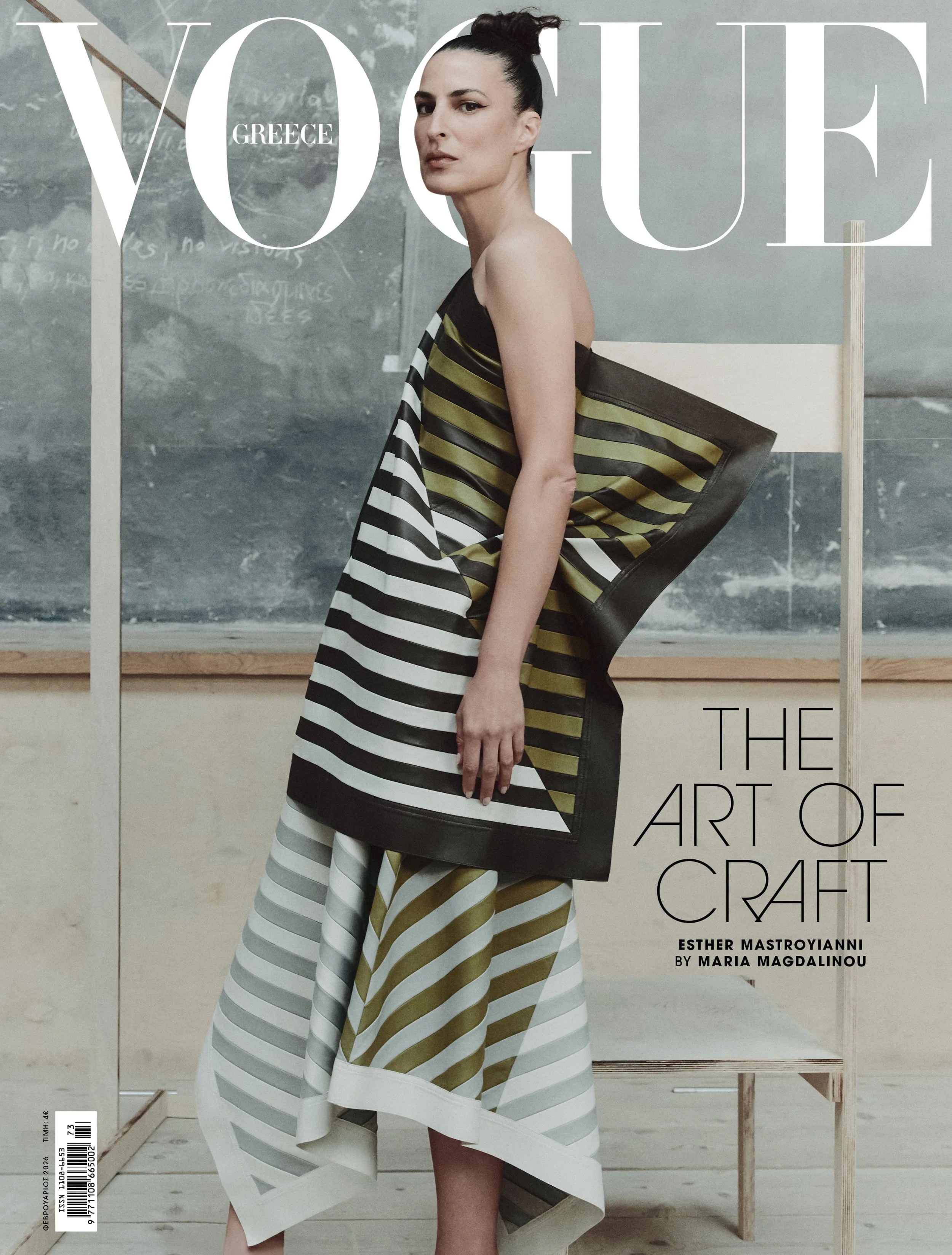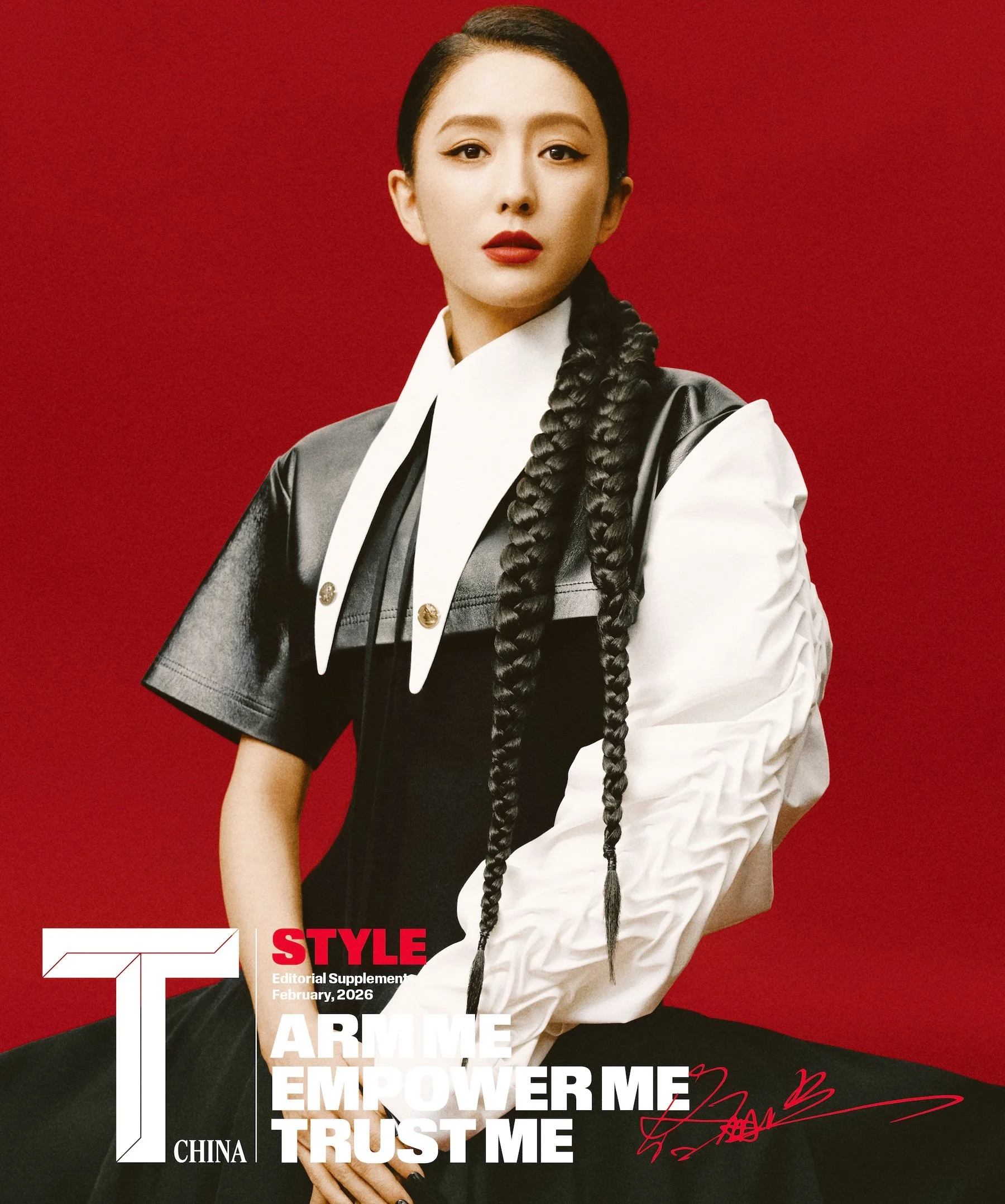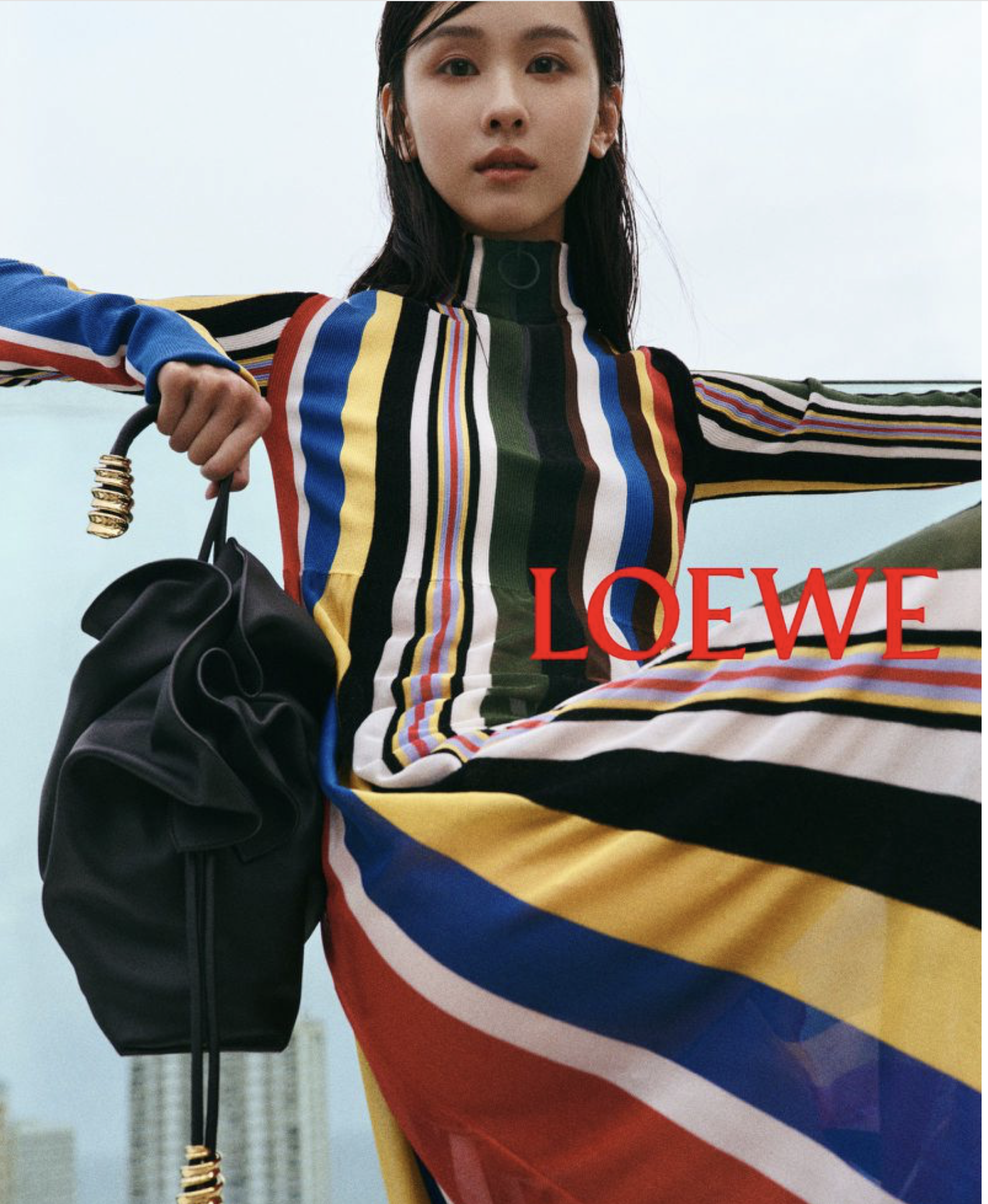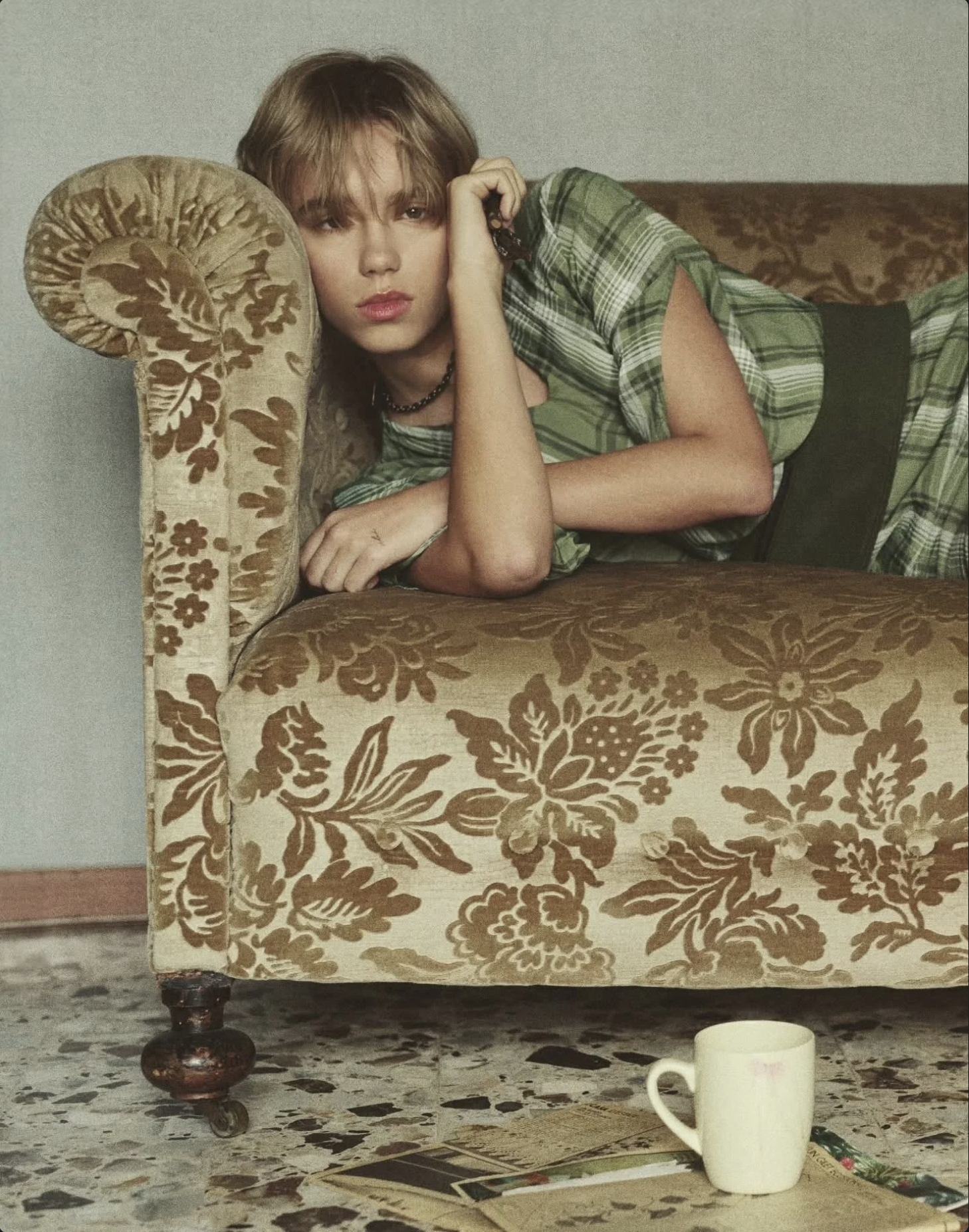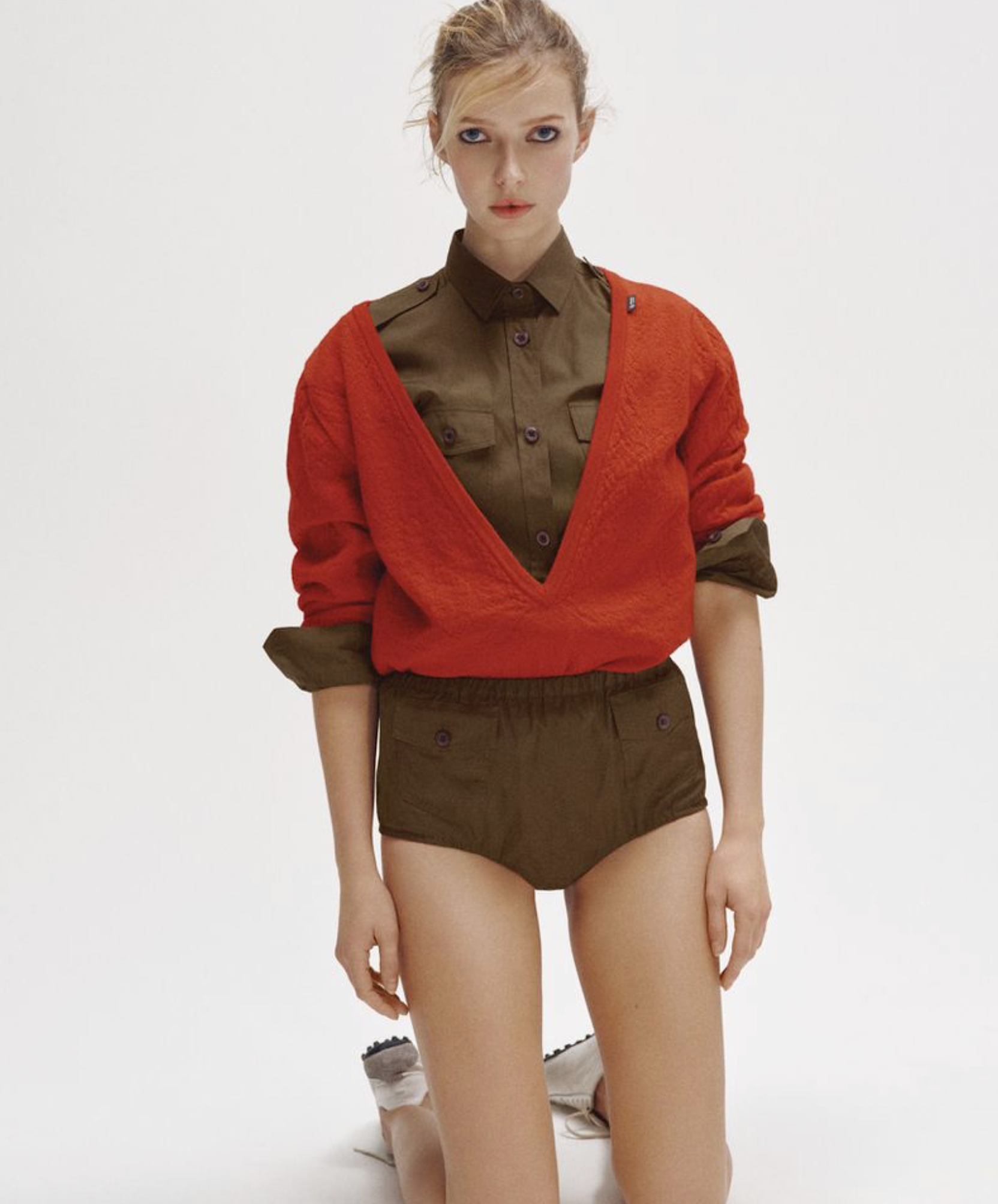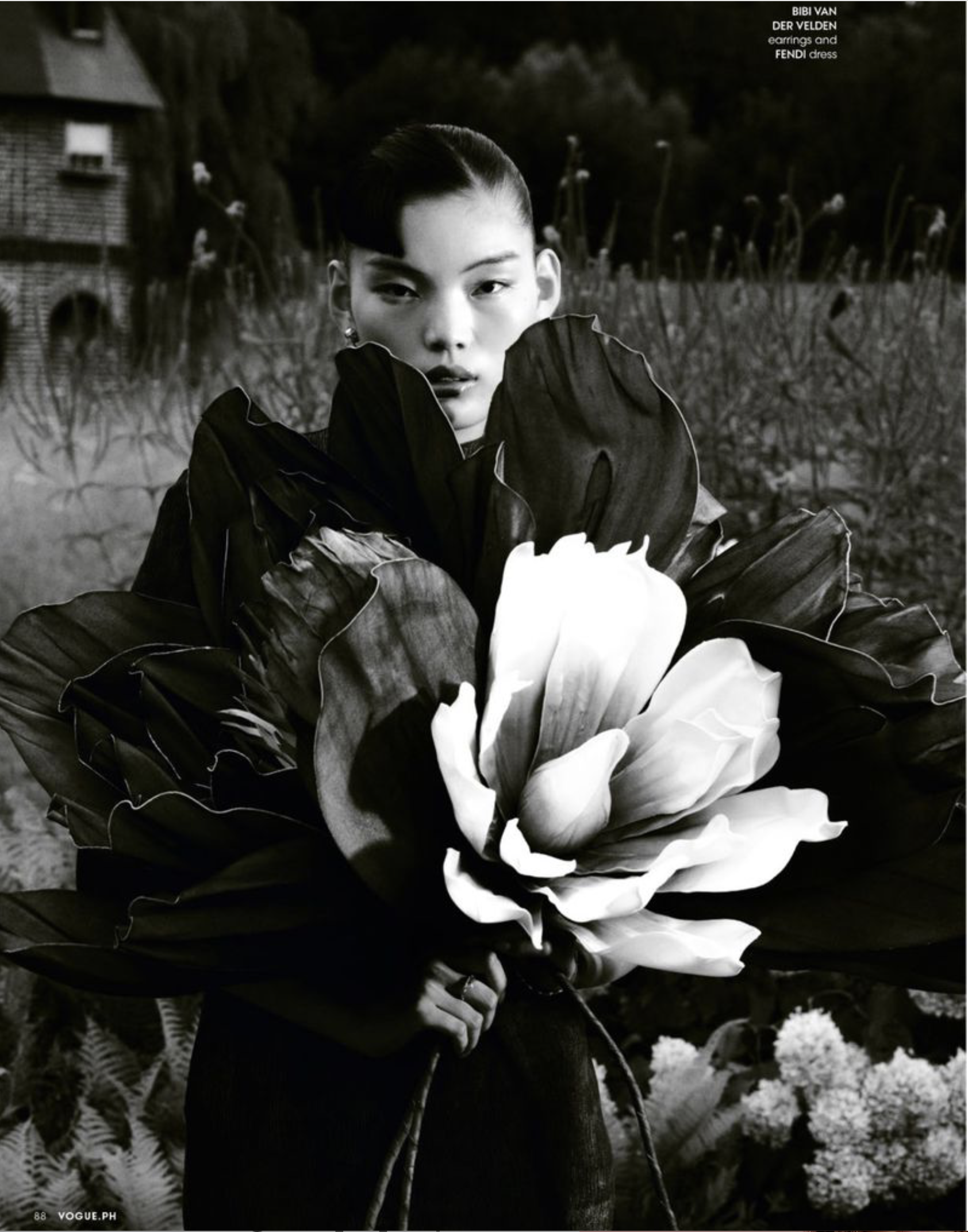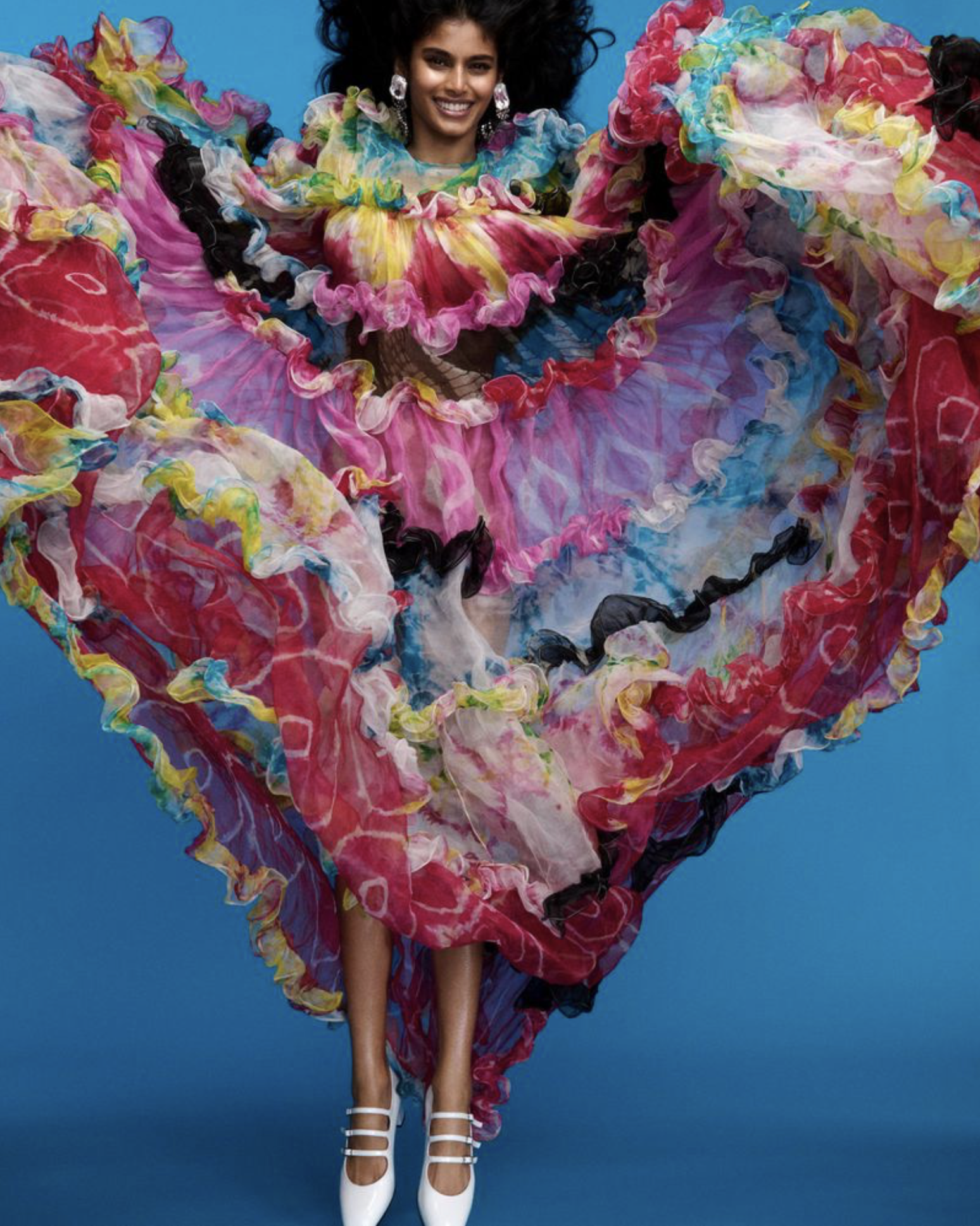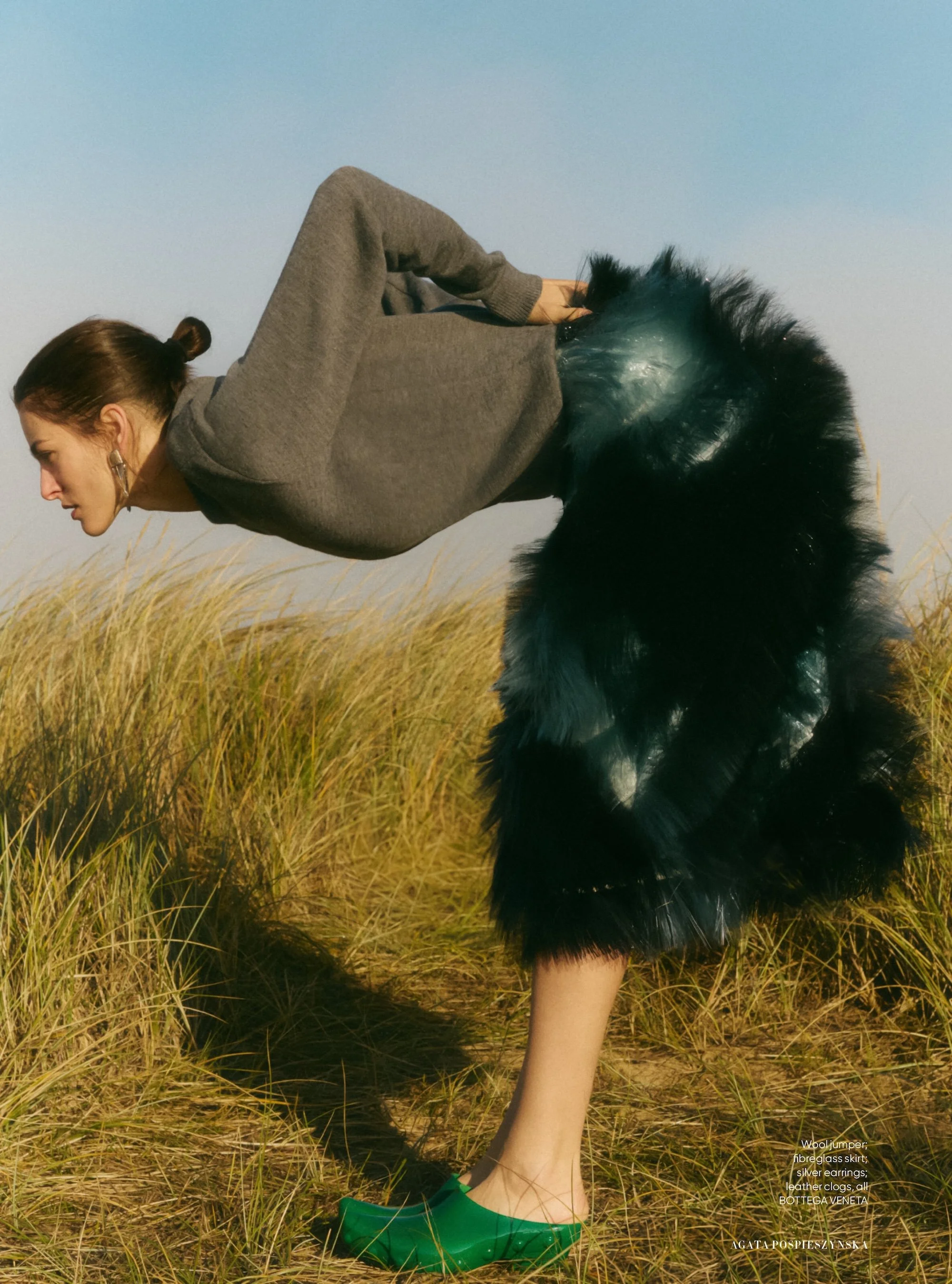Tanya Ruban in 'Spice' by Dominica Jarczynska for Vogue Portugal April 2022
/Model Tanya Ruban is styled by Ovidiu Buta in ‘Spice’, luxury earth colors from Alvaro Calafat, Atu Body Couture, Balenciaga, Doina Levintza, Genny, Like Boys, Louis Vuitton, Marni, Sportmax and more. Photographer Dominica Jarczynska [IG] captures the fashion story for Vogue Portugal April 2022.
This story is a shift from other recent editorials by Jarczynska who shared her thought on IG on creating the fashion story:
“We are all travellers. We are somewhere not without reason. Whole universe is a big clock and we are clogs. There is no mistake and no coincidence. Some of us feel like we are trapped in a hidden castle without any opportunity to change something. But do you want to be a prisoner of your life?”
On a personal level, AOC is fascinated by the imagery coming out of Vogue Portugal and Vogue Greece and other fashion magazines in the region. One of the marvelous aspects of fashion photography not discussed often are the triggers that images create in the mind of the viewer.
Images That Probe the Human Unconscious
They are different for me than for you. Then again, my own commentary resonates deeply with certain photographers.
For example, I discussed this ‘messaging’ around women’s history in antiquity with photographer Rocio Ramos after AOC shared Rocio Ramos Seizes the Power of Cardinals for Marie Claire Mexico and LA in October 2021. Her team was beyond pleased with my own understanding of the fashion story.
There is an intellectual group of image-makers out there ‘feeling’ and ‘probing’ the story of women’s history. Rafael Pavarotti is certainly in this group, along with stylist Ib Kamara. Their tendency is to channel the African continent or the fusion of Brazilian culture, resulting from the intersection of Catholic imperialism with both indigenous Brazilian culture and the slave trade.
Their vision adds an important viewpoint to collective women’s history generally and also the origins of women, men and all variations on gender in humanity’s origins in Africa.
I believe that if Vogue Scandinavia and more northern magazines weighed in historically, we would see more commonality and universality among women historical power and periods of equality — regardless of skin color — than is currently part of the visual narrative.
Women’s history in America didn’t begin with Bible-toting white women on the Mayflower coming to the shores of North America. White women existed long before the rise of monotheism, a key plank in the accelerated rise of patriarchy.
Note that the vast majority of historical research on ‘race’ charges the Vatican and Catholicism as creating the concept of racial identity and skin color to justify the slave trade. This is not to suggest that slavery didn’t exist in Africa before the imperial slave trade as we know it today. It did, even though people of color hate to acknowledge that reality.
But the concept of racial hierarchy and subsequent inferiority based on skin pigmentation is attributed to the Catholic Church, to justify on ‘moral’ grounds its financial advocacy and direct participation in launching the global slave trade. And, what we call slavery before the Europeans launched a global business in human cargo was often a time-limited period of servitude as civil punishment or in war, and not a ‘forever’ sentence to servitude, as it developed in the American national psyche and across Europe.
It’s not my point either, than only Christianity is the culprit in the evils levied against humankind. The rise of patriarchy and its principles left no religion untouched in its influence.
Marx argued it was the rise of private property. Clearly, when men understood that procreation was not exclusively a female activity but one that required them as well, women lost power. Reality is, though, that abortion was legal in America when the country was founded and widely advertised in Boston on lamp posts fliers.
Social and civil power over others is a complex and very long human story.
The Story of Women’s History
Women’s rights has been on the back burner for some time now, with a more immediate focus on trans rights and racial justice, and the tendency of younger people to find the male-female concept ‘polarizing’ and unfair to male-identifying people.
Women’s original history is slipping into dust due to climate change, the destruction of war and also deliberate erasure. Those of us who care about women’s history are in a race with time itself.
There are moments, though, when images remind me of the origins of humanity and the high place of women in it. This is one of those moments.
Because we are in Vogue Portugal for this fashion shoot, let me share a 2020 essay by Rafaela Cortez from Jacobin: The Portuguese Revolution and Women’s Liberation. With my own deep understanding of feminism in America and far beyond, imo Cortez is an excellent writer with a factually insightful overview of events in Portugal after the 1974 overthrow of Portugal’s fascist regime. .~ Anne

